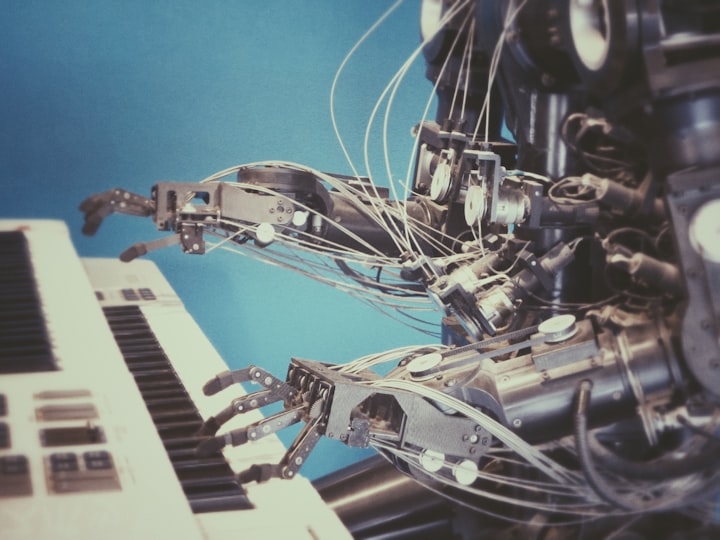
Introduction
The rapid evolution of artificial intelligence (AI) has ushered in an era of unprecedented technological progress, leaving no facet of our lives untouched. As AI continues to transform industries and societies, questions about the future of jobs have become more urgent and complex. Will AI create a jobless dystopia, rendering human workers obsolete, or will it lead to a reimagined workforce where humans and machines collaborate seamlessly? This exploration delves into the intricate landscape of the job market in an AI-driven world, dissecting the challenges, opportunities, and strategies necessary to navigate the shifting tides of employment.
The Transformation of Tasks
At the heart of the AI revolution lies the potential to redefine and automate tasks that were once performed solely by humans. Repetitive and routine tasks, such as data entry and basic analysis, are ripe for automation through AI algorithms and machine learning. However, this transformation doesn't necessarily equate to job loss on a massive scale. Rather, it prompts a recalibration of roles, enabling humans to focus on areas where their creativity, critical thinking, emotional intelligence, and complex problem-solving abilities reign supreme.
In essence, AI's role is to amplify human capabilities, not replace them entirely. This concept aligns with the notion of "augmented intelligence," where AI acts as a powerful tool that empowers humans to tackle challenges and make decisions more effectively.
The Rise of Collaborative Intelligence
The narrative of "humans vs. machines" oversimplifies the symbiotic relationship emerging between AI and human workers. Instead of supplanting humans, AI is facilitating a paradigm shift toward collaborative intelligence. AI systems can analyze vast amounts of data, identify patterns, and provide insights that humans might overlook. This newfound synergy enables professionals to make more informed decisions and solve complex problems efficiently.
A prominent example is the healthcare sector. AI-assisted diagnostics and treatment recommendations allow medical professionals to enhance patient care by leveraging the capabilities of both human expertise and AI precision. This collaborative dynamic optimizes outcomes while preserving the irreplaceable human touch in patient interactions.
The Demand for New Skillsets
The evolving job landscape necessitates a recalibration of skillsets. In an AI-driven world, adaptability, digital literacy, and the ability to work alongside AI systems are paramount. Proficiency in areas such as coding, data analysis, machine learning, and AI ethics will become the new benchmarks for employability.
Moreover, the traditional notion of a linear career path is evolving. The imperative of continuous learning and upskilling will be essential to remain relevant and agile in the face of rapidly evolving technology. Education and professional development must adapt to equip individuals with the skills demanded by this new era.
Addressing Ethical and Social Concerns
As AI integration accelerates, ethical and social concerns come to the forefront. Fear of job displacement, algorithmic bias, and the potential exacerbation of societal inequalities are legitimate apprehensions. Therefore, as we forge ahead, it's imperative to implement robust AI governance frameworks that prioritize ethical considerations.
Transparency in AI algorithms, fairness in decision-making, and accountability for AI-related outcomes are pivotal. Regulations that ensure responsible AI deployment will safeguard workers and prevent undue concentrations of power and influence. The collaboration of governments, industries, and civil society is essential in establishing the ethical foundation for AI-driven employment.
Creating New Opportunities
While AI may automate certain tasks, it simultaneously generates novel employment opportunities. The rapid advancement of AI technologies has led to the emergence of roles that were previously unheard of. AI engineers, data scientists, AI trainers, and explainability experts are among the vanguard of these new professions, demanding a unique blend of technical prowess and innovative thinking.
Industries that prioritize human-centric services, such as healthcare, education, and the creative arts, are poised to experience substantial growth. These sectors require qualities that AI cannot replicate—compassion, emotional intelligence, and the ability to establish genuine human connections.
The Importance of Soft Skills
In an era dominated by AI, the significance of soft skills cannot be overstated. These qualities—empathy, communication, adaptability, and creativity—constitute the human advantage. While machines can process data and execute commands, they struggle to comprehend the nuances of human emotion and context.
Professions that hinge on human interaction and emotional connection, such as counseling, coaching, and customer service, remain uniquely immune to automation. Soft skills not only enhance job prospects but also contribute to cultivating a harmonious work environment and fostering strong client relationships.
Preparing for the Journey Ahead
As we navigate the transition to an AI-driven job market, a proactive stance is essential. Individual adaptability and lifelong learning are foundational. Workers must be willing to embrace continuous education, upskilling, and reskilling to thrive in a landscape of perpetual change.
However, the responsibility does not rest solely on the shoulders of workers. Governments, businesses, and educational institutions must collaborate to ensure equitable access to upskilling opportunities. The creation of comprehensive reskilling programs, mentorship initiatives, and flexible learning pathways will be crucial to mitigate potential job displacement and foster a resilient workforce.
Conclusion
The future of jobs in an AI-driven world is marked by both transformation and continuity. While AI's evolution promises enhanced efficiency and innovation, it also necessitates a recalibration of skills and a reevaluation of human roles. Rather than an antagonist, AI emerges as a collaborative partner, augmenting human abilities and enabling us to tackle complex challenges more effectively. By embracing change, cultivating adaptability, and establishing robust ethical frameworks, we can steer the trajectory of AI-driven employment toward a future where humans and machines harmoniously coexist, working in tandem to shape a new era of productivity, creativity, and prosperity.
About the Creator
Fortune
Read from me to explore a world of emotions, adventures, and insights. Each piece is a journey into the heart of the human experience. Join me for captivating stories that resonate and linger.





Comments
There are no comments for this story
Be the first to respond and start the conversation.